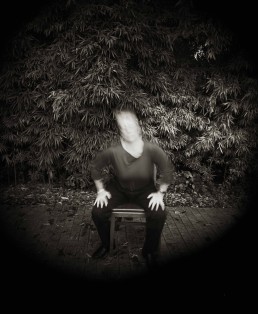S3: Fine Line - Episode 16 - Carolyn

Episode Information
Fine Line: Mental Health/Mental Illness – Episode 16 – Carolyn
[Intro Music]
Narrator: Welcome to Season three Fine Line narrative histories about mental health and mental illness, a traveling exhibition and weekly podcast edited and hosted by Michael Nye, supported by Kronkosky Charitable Foundation. May you find insight and understanding in these voices. Episode Sixteen, Carolyn.
Carolyn: There’s, you know, a, a, a narrative image, um, that I have of playing hide and seek in, uh, on a summer evening with the neighborhood kids, with hiding in a, um, a bunch of tall grass undergoing that, uh, that excitement and dread about being discovered and letting that gradually fade away. And then lying on my back and kind of losing track of the game and watching the evening stars come out, realizing that all the other kids had gone home, <laugh>, and I was still there. And that was, uh, you know, that moment when you look out into space and you realize, <laugh>, I’m alone. And a lot of my images, um, around depression have had to do with being adrift in space, falling out of orbit and into darkness.
Depression in childhood, my experienced as isolation, darkness and panic, shame, inability to tell anyone about that. My grandparents thought there was something wrong with a child who liked to be alone so much, and who would be gone just kind of wandering through woods and fields and walking long distances. Depression is not a mood, looks like a mood, uh, from the outside. But it’s, um, I wish I weren’t getting sick with this flu. I wish, uh, you know, I didn’t want to sleep all day in the worst times. I just can’t get out of bed. I render myself unconscious, um, just as a way of kind of treading water, because I do know this will pass <laugh>, you know, it will change, but I, I, I just disappear. I feel that I’m protecting this little seed of myself. It’s like being in a tornado shelter while <laugh>, while the storm rages. There’s also, you know, where I am frantic. My body is, uh, kind of throbbing and weeping. I can’t tell what’s important. Everything seems equally important and equally pressing. It’s like having a small child sort of pulling at your sleeve while you’re trying to live your life and saying, well, why don’t you just disappear? But I think that’s, that’s the place where a lot of people come. Who, who do commit suicide.
I know certain things, for example, that I know. Depression is in some ways a gift because you don’t go to those deep places very willingly. And I have a condition that forces me to go there. And it’s a place where I meet the most substantive aspects of myself. And it has to do with trusting the wisdom and the cycles of things, because ultimately you do have to just kind of give yourself up to it. You know, it’s a force of nature that exists in me. My name is Carolyn. I teach writing at Stanford University to mostly young people, and I enjoy so much being connected with them at a time in their lives when they are changing.
[Outro Music]
Host: Carolyn told me, human passion is mysterious. It’s the human motivator. Where does it come from? And when it disappears, how can we reclaim it? She said, what helped me the most was friends and family coming by, staying close, not giving up on me, and listening. There’s so much misunderstanding circling around mental health and mental illness. Mental illness does not mean one is violent or dangerous. Does not mean one is stupid. Dumb or lazy does not mean it’s their fault, or that they’re being punished for something they did. Mental illness is not the result of a personal weakness, and it’s not contagious. I remember Carolyn quoting Virginia Wolf, a writer who also experienced major depression. You must read the landscape of your life to find places where grief and pain reveal some truth. Thank you, Carolyn, for your presence, for your wisdom and your careful, powerful voice. I’m Michael Nye. You can go to my website, michaelnye.org/podcast for Carolyn’s portrait and transcript. Thank you for listening.
